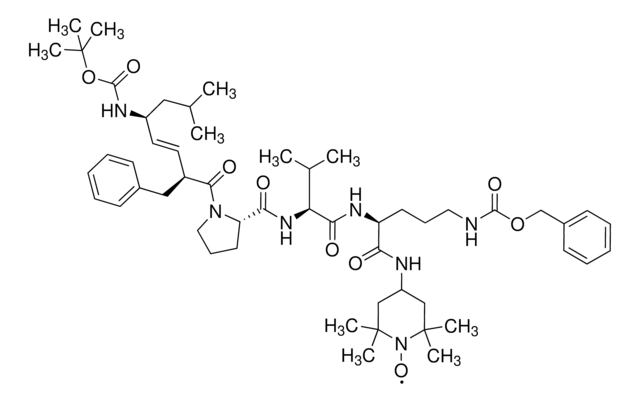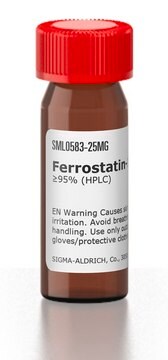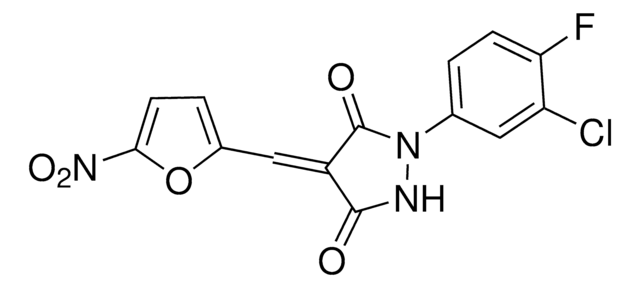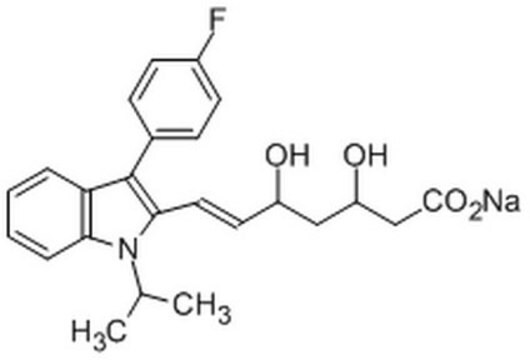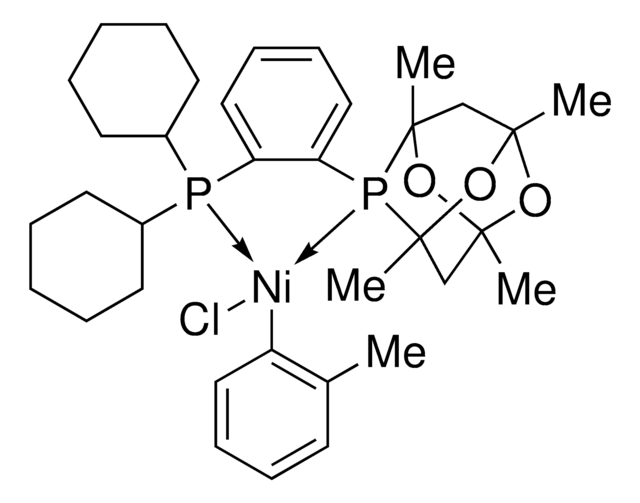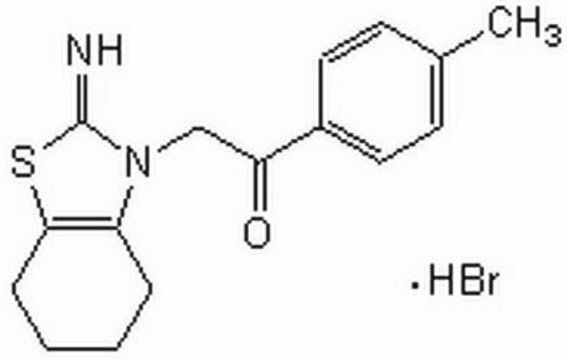SML2807
JP4-039
≥98% (HPLC)
Synonym(s):
4-[[(3E,5S)-5-[[(1,1-Dimethylethoxy)carbonyl]amino]-7-methyl-1-oxo-3-octen-1-yl]amino]-2,2,6,6-tetramethyl-1-piperidinyloxy, JP 4-039
About This Item
Recommended Products
Quality Level
assay
≥98% (HPLC)
form
powder
color
faint yellow to dark orange
solubility
DMSO: 2 mg/mL, clear
storage temp.
−20°C
SMILES string
O=C(C/C=C/[C@@H](NC(OC(C)(C)C)=O)CC(C)C)NC1CC(C)(C)N([O])C(C)(C)C1
InChI
1S/C23H42N3O4/c1-16(2)13-17(25-20(28)30-21(3,4)5)11-10-12-19(27)24-18-14-22(6,7)26(29)23(8,9)15-18/h10-11,16-18H,12-15H2,1-9H3,(H,24,27)(H,25,28)/b11-10+/t17-/m1/s1
Biochem/physiol Actions
Storage Class
11 - Combustible Solids
wgk_germany
WGK 3
Choose from one of the most recent versions:
Certificates of Analysis (COA)
Sorry, we don't have COAs for this product available online at this time.
If you need assistance, please contact Customer Support.
Already Own This Product?
Find documentation for the products that you have recently purchased in the Document Library.
Our team of scientists has experience in all areas of research including Life Science, Material Science, Chemical Synthesis, Chromatography, Analytical and many others.
Contact Technical Service